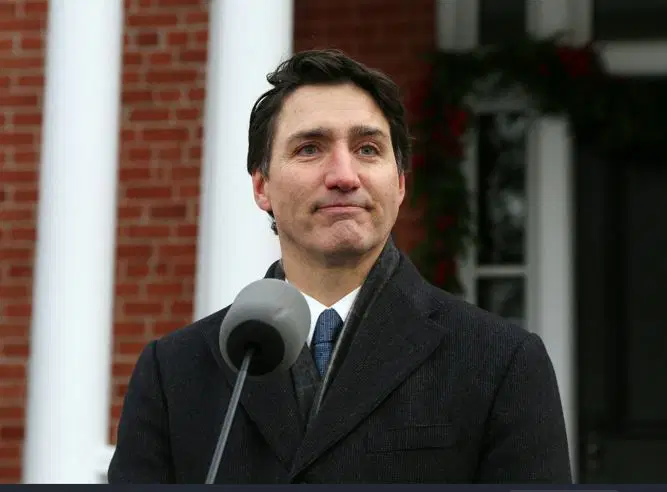International
Trudeau steps down as Canada’s Prime Minister amid political turmoil

Canadian Prime Minister Justin Trudeau announced on Monday that he will resign from his position after the ruling Liberal Party selects a new leader. The decision follows months of declining polls, internal strife within the party, and mounting political pressure.
“I intend to resign as party leader, as prime minister, after the party selects its next leader,” Trudeau stated during a press conference in Ottawa. His decision comes after a period of political turmoil that saw prominent Liberal allies urging him to step down.
The timeline for Trudeau’s departure remains uncertain, as he will serve as a caretaker prime minister until a new leader is chosen. He assured Canadians that the leadership race would be “a robust, nationwide competitive process.”
Despite his impending resignation, Trudeau will still oversee Canada’s initial response to the new U.S. administration under President Donald Trump, who is set to take office this month. Among the pressing challenges is Trump’s promise to impose 25% tariffs on all Canadian imports—a move that could severely impact Canada’s economy. Trudeau has pledged to retaliate if necessary.
Trudeau, 53, has served as prime minister since 2015, when his youthful energy and focus on key issues like climate change helped him unseat long-time Conservative leader Stephen Harper. Prior to leading the Liberals, Trudeau was best known as the son of Pierre Elliott Trudeau, one of Canada’s most iconic prime ministers.
Read also: Equities market kicks off week with N38bn profit for investors
However, after more than nine years in power, Trudeau’s popularity within his party and the country began to wane. The situation worsened in December with the resignation of Chrystia Freeland, his former finance minister and deputy prime minister.
In her resignation letter, Freeland criticized Trudeau for prioritizing short-term political gimmicks—such as a costly Christmas tax holiday—over addressing Canada’s financial challenges, particularly in light of the looming U.S. tariffs.
The Liberal Party, currently trailing in polls behind the opposition Conservatives, must now find a leader to guide them into the next election, scheduled for this year. Trudeau admitted he was no longer the best candidate to lead the party forward.
“This country deserves a real choice in the next election, and it has become clear to me that if I’m having to fight internal battles, I cannot be the best option in that election,” he said.
Potential candidates to succeed Trudeau include Chrystia Freeland and Mark Carney, the former governor of the Bank of England and the Bank of Canada. Several other contenders are expected to join the race.
Lori Turnbull, a political science professor at Dalhousie University, noted that while a typical Liberal leadership race might take four to six months, “they’ve got to be quicker than that” in this case.
Conservative leader Pierre Poilievre wasted no time in criticizing the Liberal Party following Trudeau’s announcement.
“Every Liberal MP and leadership contender supported EVERYTHING Trudeau did for 9 years, and now they want to trick voters by swapping in another Liberal face to keep ripping off Canadians for another 4 years,” Poilievre posted on X, formerly Twitter.
The Conservatives had brought three non-confidence votes against Trudeau’s government last year, all of which narrowly failed. The minority government relied on a deal with the left-leaning New Democratic Party (NDP), but the NDP announced in December they would vote to topple Trudeau at the next opportunity.
To buy time, Trudeau confirmed that he had obtained permission from Canada’s governor general to suspend all parliamentary business until March 24. This move is expected to give the Liberals time to choose a new leader while limiting the opposition’s chances to bring another vote of non-confidence.
The coming months will be critical for the Liberal Party as they navigate leadership changes and prepare for what promises to be a contentious election.
Join the conversation
Support Ripples Nigeria, hold up solutions journalism
Balanced, fearless journalism driven by data comes at huge financial costs.
As a media platform, we hold leadership accountable and will not trade the right to press freedom and free speech for a piece of cake.
If you like what we do, and are ready to uphold solutions journalism, kindly donate to the Ripples Nigeria cause.
Your support would help to ensure that citizens and institutions continue to have free access to credible and reliable information for societal development.


























